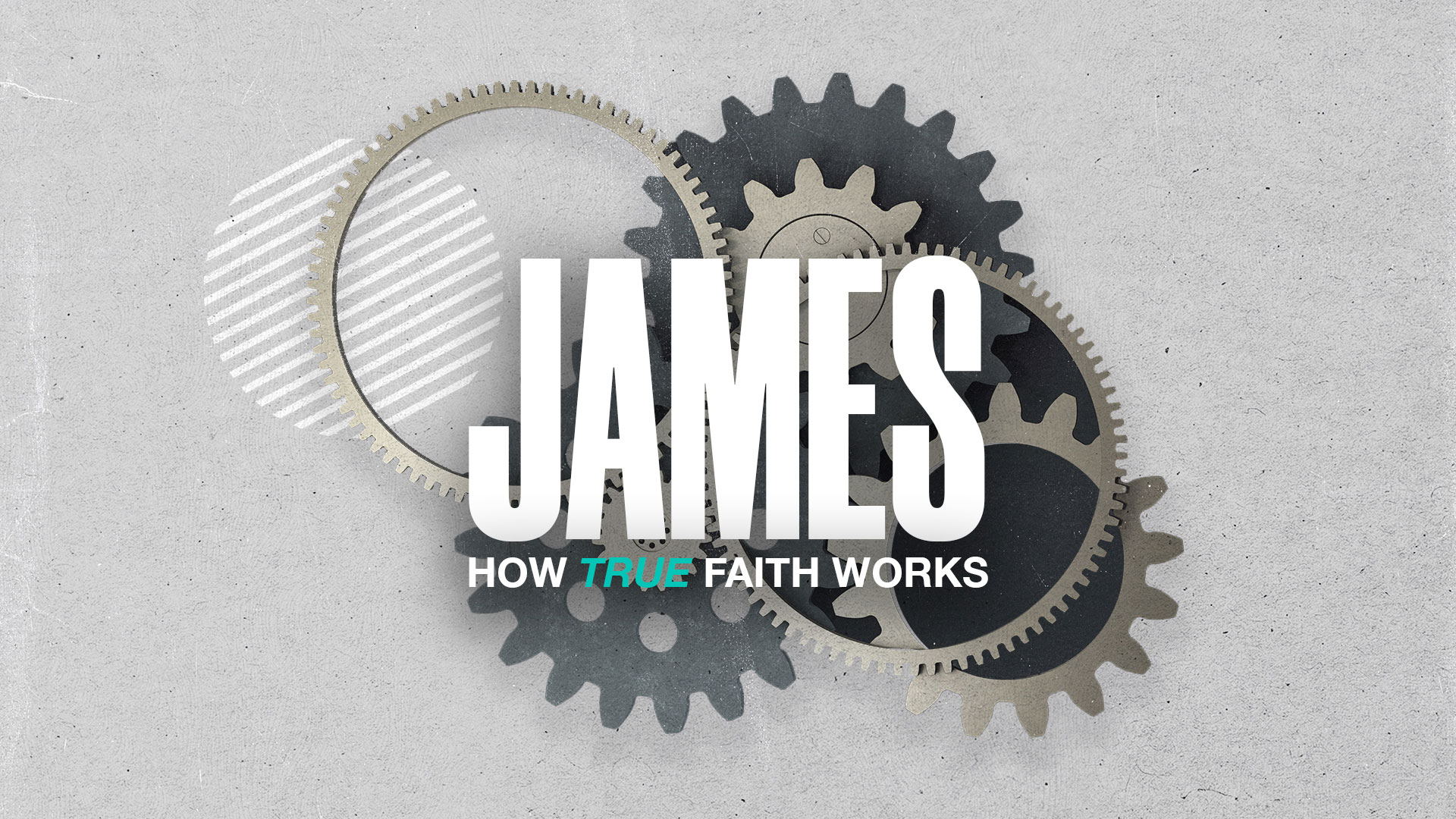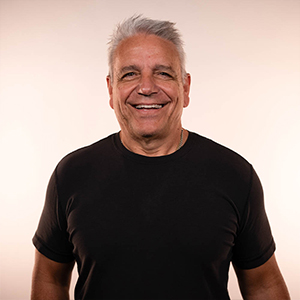All He Wants Me To Be, James 1:2-8
Discussion & Practice
- Read James 1:1-8. How willing does God appear in these verses to give wisdom for the kind of life he's calling you to live?
- In what manner are we called to ask God for this wisdom? What does it look like in practice?
- What does James mean by double-minded in this passage? What shape has this taken in your life in the past?
- What are some areas where you could be more compassionate, humble, or detached from worldly things?
Notes
We’re in the book of James learning about genuine faith. For James, true faith is everything. You need it for everything. Your faith must be tested. Faith is not a possession you obtain and store away. It’s meant to be used. It’s impossible to do anything God wants you to do without it.
So it’s a danger for faith not to be active. You don’t have what you think you do if you don’t have it, and you’re not who you think you are if it’s not active. There’s great joy in trials to realize that your faith is real.
When you ask, “What’s going on?” James says there’s a lot going on. We looked last week at that reality in a picture.

Faith goes to work when it’s tested to produced endurance. Faith is activated in order to keep moving. It’s producing something in each of us so that we are perfected and completed.
Whenever I think of the divine work, which is impossible to define or explain, there’s all this divine activity going on that is hard to describe perfectly.
John Bunyan’s Pilgrim’s Progress is an allegory of the Christian life lived out. The main character, Christian, is shown a fire burning, and there’s a man standing in front of it trying to put it out with water, but it goes higher and higher. When they look behind, there’s someone pouring oil on it to counter the effects of the water. The fire is the picture of the work of God in your life, the man throwing the fire represents the devil, and the man with the oil represents the work of Christ.
There’s a divine work going on behind the scenes, because God is committed to keeping your faith ablaze.


This steadfastness or endurance increases your capacity and opportunities. Now, endurance is working too. Whatever that perfect or full effect is, he’s saying there’s a lot it can do and it’s not done yet.
It’s not automatic. Faith is at work, but it’s not automatic. You have a part to play in that. You have to let it work. You must engage in it.
How do I slow down the process? Is there a way I shut down production or get off course? There’s probably a lot of ways. One of them might be disengaging when we’re hurting or shocked or angry. We shut down spiritually. That’s ok for a minute––to get knocked off your feet, land on your rear, and not be sure you can get up. But you can’t stay down there. We’ll all come around you. But you can’t stay there long. If you stay there too long, you’ll begin to act in a way that is less than virtuous and cause more problems.
Part of believing is trusting God that in this pain I can muster the energy to keep moving.
We emphasized endurance for so long, but James says endurance is not even the goal. It’s actually trying to accomplish something too. The goal is to complete you.
When we ask, what is happening? It’s hard to answer. But the circumstances aren’t as important as who we are becoming. It always matters to God who you are becoming.
There’s a perfecting work that happens in endurance.
Perfect here is whole or sound. It’s not squishy or partial. James adds that you lack nothing. The idea behind that is that you’re equipped.
God wants you to be as equipped as you can be––to have the resources and the character for what you’re about to deal with.
This raises two questions. First, is it ever really possible for me to be who God wants me to be without suffering? It sounds as if there’s no way. The process is too tight. Trials produce endurance, which produces character. It’s not a comfortable answer, but we would probably all agree.
The second question is whether this is what we really want. Do I really want to be complete? Don’t answer it too fast. Take some time to explore that.
Can you really be who God wants you to be if you don’t ever hurt? How compassionate can you be if you’ve never hurt?
Do I want this?
There’s nothing in the world like being comforted by a person who knows where you are. You need that person. The exchange is supernatural. There’s nothing like it. You’ll never be able to understand the value of your pain until you share it.
I think of Mike and Beth’s story. They posted about their baby and how they’ve waited and watched and they’ve been able to pour into others and their marriage has been strengthened.
How many of you could use someone who knows how you feel today? How many of you wake up just wanting someone to look at you and know exactly how you feel?
How many of you need to be more compassionate? Maybe your hurt has hardened you and you’re not very compassionate. Your first response to people’s pain is that they deserve it. There’s probably people within your reach whose lives would be changed if you would be more compassionate. Is that what you want? That’s what God wants for you.
What about humility? How humble can you be if you’ve never been hurt? The biggest thing I’ve learned is that hardship teaches us how incapable we are, how little we know, and how we don’t even know how much we do need God. We don’t even know that until we get humbled.
Remember when Paul was defending his character from people who were undermining his ministry and he had to boast about it and hated it. He said he had a thorn in his flesh.



He might as well have said, when I’m humble I’m at my best. How can he be without thorns?
Most of us have serious family problems. You’d be real snotty about how great your family is if you didn’t have family problems. Some of them are daily and in your face. Otherwise you’d just be picture perfect.
What about your business? Maybe you failed at it. You’d be a real snotty person if your business just always went up.
There’s a sense in which some of those things are thorns to keep you from getting arrogant. With social media, we only show you the good side. That’s a whole make-believe world. Don’t read fairy tales, just read social media.
There’s probably somebody in your life who you could show some humility and it would change their world. Your weakness gave them life. That could happen if you could show humility.
Do you want to be a humble person. Do you even want that? That’s what God is trying to produce. Or how attached you are to things. Most of us would think we’re pretty humble or compassionate or not attached to things until you lost it.
It could be your reputation. It could be people or stuff or a person or a job or anything until God takes it away. You’d never had known it unless you went through a hardship. God is freeing us to things we’re attached to. Some of the things you’re attached to are ruining your life because you won’t let it go. How many of us are ruining our lives because we can’t let it go.
Do you want to know that freedom? You have to go through hell to be free. But do you want that? Because that’s what God wants for you.
There’s so many times I want to tell when I’m preaching that I hate telling you what I’m telling you, because I know how bad it hurts.
You have the bucket of water that you’re pouring on your own faith. The answer to these questions set up where we are today. Maybe you say you need to be more humble, or compassionate, or free.

Wisdom is doing the right thing next, practically speaking. Sometimes you’re not really sure if James is interchanging faith and wisdom. Sometimes they’re indistinguishable. If you don’t want it, you’re not going to ask him.
James just keeps teasing things that are deep within us. I’m not all I should be and I recognize that. You’ve got to ask. You’re not getting through this or growing unless you ask.
You lack and you don’t know what to do next most of the time. James is presenting wisdom in the context of a request in this relational dynamic. We don’t like asking, because it says that you don’t have it. You’ve got to really face that. It’s not easy. You’ve got to look at God and say I want that.
You’ve got to pray. Prayer means so many things. There’s a relational dynamic with God that requires humility. To ask God for wisdom might just be a heart that opens his word today. Or it could be an actual prayer. When I sit on my couch in my quiet time in the morning, I’ll say, I’ve got a problem I don’t know what to do with. I’ll rehearse it. One of the best things that’s forced me to do is to wait for an answer before I go do something.
Sometimes you’ve got to just sit in a problem and wait for the right time. Sometimes God solves the problem for you and you didn’t have to do anything and you didn’t even have to open your mouth.
God wants you to act in a way that builds your character. He gives without reproach. We need to hear this when we ask for help. He won’t beat us down when we ask. You don’t ever hear from God, Oh now you want my help! That means that no matter how big of a mess you’ve made or how clueless you are to get it done, God is not going to turn you away.
You can start acting smart at any time, as dumb as you’ve been for so long. It doesn’t matter if you’ve been done for 60 years or 10 minutes. Some of you think the smart days are over. You can go to God right now and admit you’ve been doing it dumb a long time.

James coined this term. In Pilgrim’s Progress, you come across a guy named Facing Both Ways. James is describing spiritual schizophrenia. This is in contrast to God’s single-mindedness.
This is why he uses the picture of a wave tossed around by the wind. You’re a liquid being driven, not taking any particular shape.
The double minded person shouldn’t expect to receive anything from the Lord.
You either don’t ask so you don’t get––that’s you saying no to God––but can you imagine God saying no to you?
If you’re in here and don’t know Christ personally, maybe you thought you could get there your own way. But if you humbly put your hand out with nothing in it, God will give you the wisdom and salvation you need today. But you won’t be able to do it alone or by yourself.
From This Series

The Way Back, James 5:19-20

Make it Rain, James 5:13-18

Sin and Sickness, James 5:13-15

Straight Talk, James 5:12

Is It Possible...? James 5:11

X, Y, and Maybe Z? James 5:7-11

A Grumbling Grumble, James 5:9

Fix Your Heart, James 5:7-11

Suffering: A Framework, James 5:7-11

